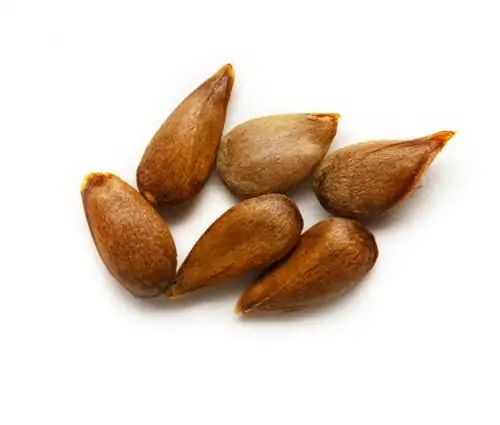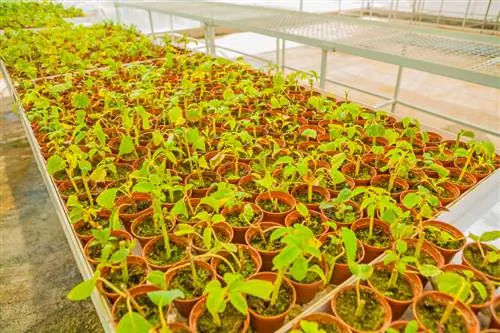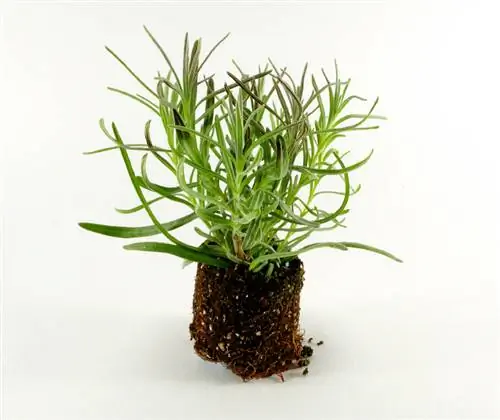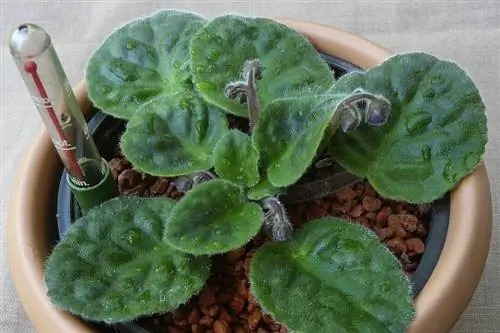- Author admin leonars@hobbygardeners.com.
- Public 2023-12-16 16:46.
- Last modified 2025-01-23 11:20.
Violets - who doesn't fall in love with them when they discover them in spring with their delicate, violet-blue and wonderfully fragrant flowers? Very few people know that these plants are easy to propagate. They even like to tackle the propagation themselves

How to propagate violets?
Violets reproduce by self-sowing, runners or division. When self-seeding, ants help spread the seeds. Initiative can be done by sowing the seeds or dividing the roots.
Violets reproduce through self-sowing and runners
These perennials can easily spread on their own over the years and colonize entire areas if they feel comfortable. Violets form long above-ground runners. However, these do not bloom in the first year.
Ants also help with reproduction. They carry the ripe fruit bodies around, feed on them and leave the seeds lying around. Soon the seeds will germinate and new violets will be the result.
Taking sowing into your own hands
If you don't really trust self-sowing and runner formation, you can take propagation into your own hands. How about sowing? You can harvest the violet seeds yourself in March or buy them commercially (€4.00 on Amazon).
- Seeds are cold germinators and light germinators
- Before sowing your own seeds, stratification is necessary (e.g. in the refrigerator)
- Sowing time: August to March
- Sowing location: outdoors or in the seed tray
- Press the seeds on or cover them very thinly with soil
- as soon as the seeds have germinated: place in a warm place
- Advantages of sowing: Violets are more vigorous and resilient than with other propagation methods
Dividing violets in spring or autumn
An easier method of propagation is dividing viola. Division should be carried out in spring after flowering or in autumn. To do this, dig up the root ball of the violets. The next step is to divide the roots in the middle, for example with a knife or scissors.
The daughter plants obtained are planted in another location. When planting, keep a distance of 20 cm between each specimen. The ideal location is partially shaded and humid. The soil should be enriched with some compost right away when planting. This accelerates the growth.
Tips & Tricks
Once violets have settled in the location, they quickly become wild. They even like to take over lawns if they are in partial shade.






